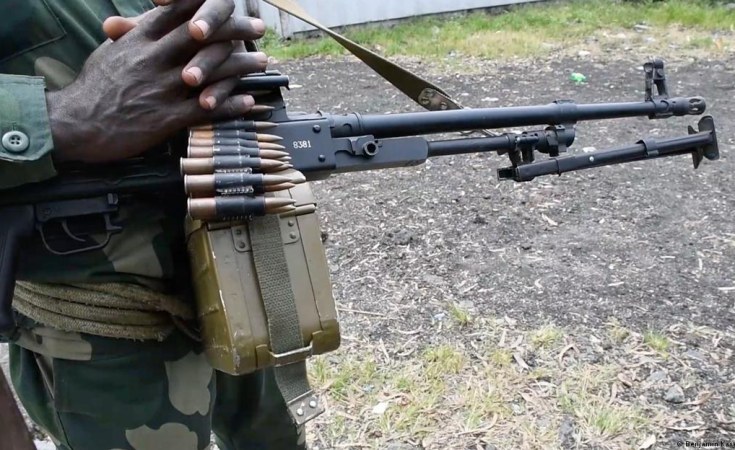Burundi will deploy troops to the East African Regional Force in eastern DR Congo, on March 4, in line with the roadmap set by the EAC military chiefs on February 9, in Nairobi, Kenya.
An East African Community communique indicates that Burundi confirmed this "through their Chief of Defence Forces" and that all other EAC troops contributing Partner States "will shortly deploy within the agreed time frame."
The deployment is part of the implementation of directives by the 20th Extra-Ordinary Summit of EAC Heads of State held on February 4, in Bujumbura, Burundi; the February 9 meeting of the EAC military chiefs; and Mini-Summit on Peace and Security in eastern DR Congo held on the side-lines of the 36th African Union Summit on February 17, in Addis Ababa, Ethiopia.
"The timeline of constituting and deploying the EAC Monitoring and Verification Mechanism (EAC-MVM); to monitor and verify the ceasefire and withdrawal by all Armed Groups, was set for 28th February 2023," reads the EAC statement.
The regional force was deployed in November 2022 as a peace enforcement unit.
The initial deployment was in an effort to try to calm a deteriorating security situation especially after the resurgence of the M23 rebellion overshadowed the presence of more than 130 armed groups in eastern DR Congo, including the FDLR, a terrorist group sanctioned by the Security Council in 2013. The group was founded by the Rwandan government forces and militia that committed the 1994 Genocide against the Tutsi in Rwanda.
Only Kenya has, so far, deployed troops to eastern DR Congo under EACRF. Uganda and South Sudan announced deployment plans, but their troops have not yet joined the EACRF operation. Kinshasa objected to the idea of Rwanda also contributing troops to the regional force and it remains unclear whether Kigali could play a major role considering the regional leaders' directives during their February 4 Summit.
Three staff officers from Rwanda serving at the EACRF headquarters in Goma were deported on January 30, - a move that raised concerns about Kinshasa's commitment to the regional peace efforts.
As noted, EAC partner states have since identified members of the EAC Monitoring and Verification Mechanism (EAC-MVM) who will join other existing mechanisms such as the Ad-hoc Verification Mechanism and Expanded Joint Verification Mechanism in eastern DR Congo.
The Chairperson of the EAC Heads of State Summit, Burundi's President Évariste Ndayishimiye, on March 2, held a consultative meeting with commanders of the verification mechanisms, with a view to review the progress and set up a joint verification framework in line with the directive of the February 17 Mini-Summit on Peace and Security in eastern DR Congo.
The bloc's quest to find a sustainable solution to the restoration of peace and security in eastern DR Congo has received support from across the globe.
Top Rwandan officials have continuously reiterated Kigali's concerns about a selective and double-standard approach by the international community and the Congolese government to fighting armed groups in DR Congo.
In June 2022, Bintou Keita, the Special Representative of the Secretary-General, expressed concern about the deteriorating conflict in the east of the neighbouring country.
Keita especially expressed concerns over growing hostility targeting Rwandans and Kinyarwanda-speaking Congolese in eastern DR Congo.
Rwanda is aware that the Congolese army, FARDC, is fighting the M23 alongside FDLR.
During the just concluded 36th African Union (AU) Summit, the African Union Peace and Security Council committed funds to support EAC peace-making efforts in eastern DR Congo, from the African Union Peace Fund.
Other development partners and global bodies have also committed to continuing supporting the process.
As noted, the bloc remains committed to the use of existing regional and global frameworks to address the security crisis.
The EAC has called for immediate ceasefire, withdrawal of all armed groups in eastern DR Congo and embracing of dialogue. The narrative by Kinshasa so far is that Kigali - which allegedly supports the M23 rebels against Kinshasa - is the aggressor, and the DR Congo is the perpetual victim.
Rwanda's Minister of Foreign Affairs and International Cooperation, Dr. Vincent Biruta, told a high-level segment of the Human Rights Council, on March 2, that: "It is a dishonest political stunt to turn a domestic conflict about the fundamental rights of Congolese citizens into an accusation against Rwanda, right here in the Human Rights Council."
The dishonest political stunt of turning a domestic conflict about the fundamental rights of Congolese citizens into an accusation against Rwanda, Dr Biruta noted, "is a political tactic that always comes up" in DR Congo before elections, to whip up populist support and silence opposition.
Congolese President Felix Tshisekedi on February 27 claimed that a conflict with rebels in the east of the country could disrupt preparations for general elections scheduled for December 20.


